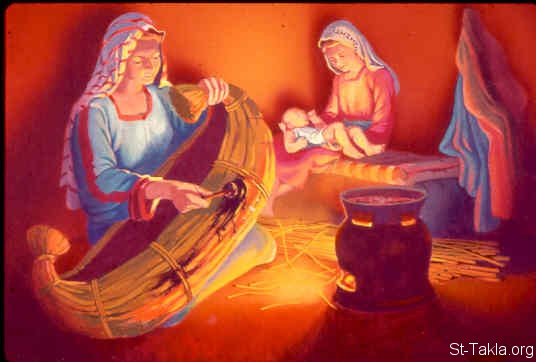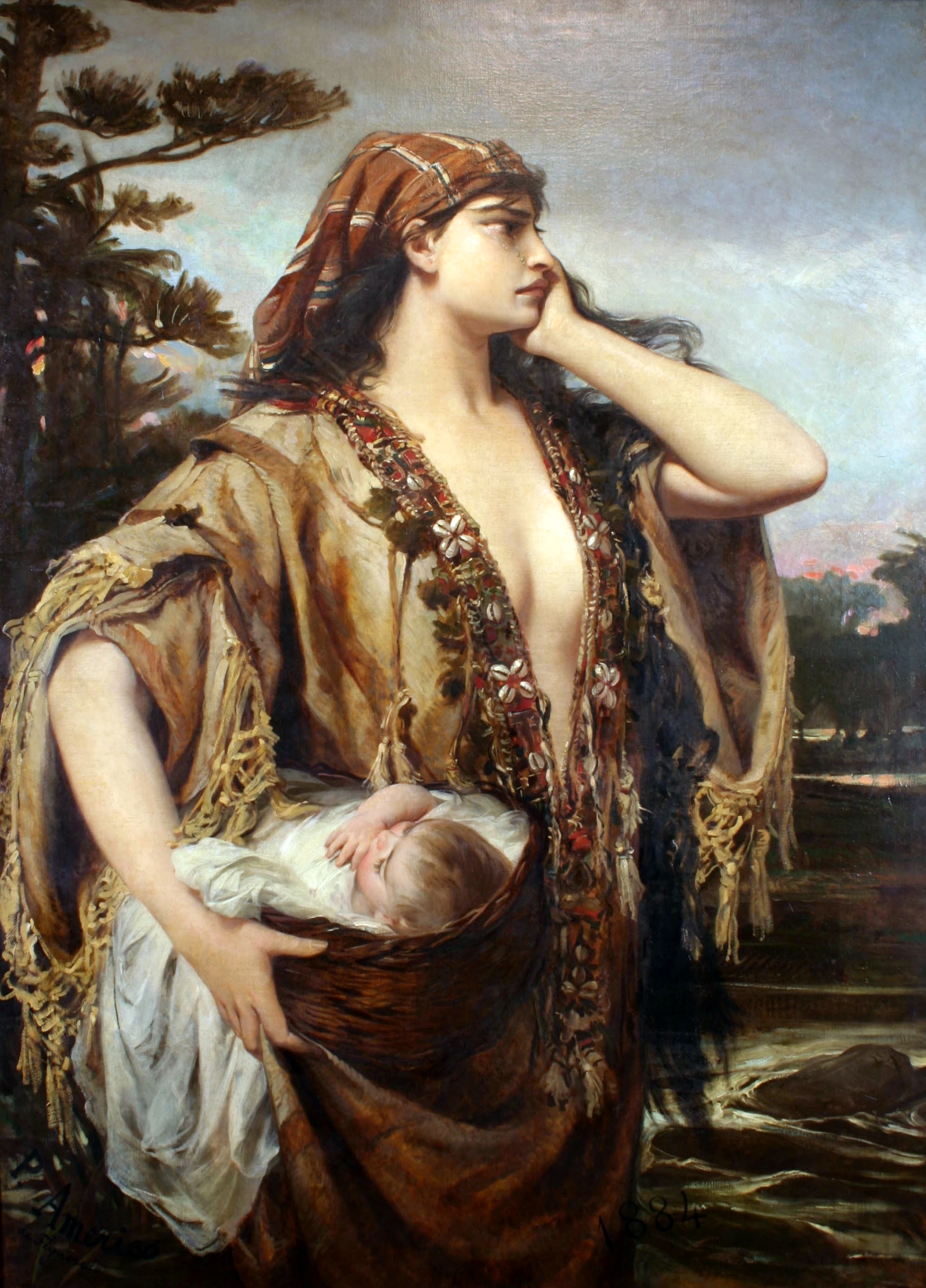
(Written by Sheila Gail Landgraf)
We are told in Exodus chapter two that a man
from the tribe of Levi married a Levite woman and she became pregnant and gave
birth to a son. The people of God were
still living in Egypt under the bondage of slavery. It was a very bad time to be pregnant with a
son. They were all being killed by
Pharaoh’s orders. The Egyptian
astrologers had seen a sign in the sky that had predicted the birth of a leader
that would deliver the Israelites out of Egypt's bondage.
Pharaoh did not want this to happen.
He felt threatened by every Israelite boy that was born after this
prediction by his wise men and he was determined to kill them all. One little boy survived.
Levi was one of Jacob’s twelve sons. Levi had three sons; Gershon, Merari and
Kohath. Kohath had four sons: Uzziel, Hebron, Izhar and Amram. Amram is the man from the tribe of Levi spoken
of in the previous sentence. He was the
father of the little boy who survived.
Amram married Jochebed. Some of the ancient writings proclaim that
Jochebed and Shiprah, the head midwife, were the same person. We have no way of knowing if this is correct
or incorrect. There are scrolls that have
been found that some think show good evidence. The same writings suggest that Jochebed was a
good bit older than Amram and that she was actually his aunt, and Gershon’s
daughter. The marriage to one’s aunt
would not have been wrong in this time period – the commandments forbidding this
had not yet been given, so she is not without honor because of this. This history also could be wrong information;
we have no way to know for sure, but some writings seem to point this way. A few scripture passages here and there lead
you to believe this is probably true.
You can study and decide for yourself.
It does possibly answer one question though, the question that asks why God would have left out the name of
the mother of Moses. Perhaps He did not. Perhaps Shiprah and Jochebed were the same
woman with both Hebrew and Egyptian names.
It seems logical.
Amram and
Jochebed had three children; and the oldest was a daughter named Miriam. There is historical evidence to suggest that
Miriam served along side of her mother as a mid-wife. Many believe she was the same as Puah. If this is true, both the mother and the
sister of Moses would have been named in the scriptures and not
overlooked. It seems logical, but we do
not know for sure.


The other two younger children of Amram and
Jochebed were boys named Aaron and Moses.
Aaron was the oldest and he was born before the prophesy came which
caused Pharaoh to kill all the boy babies of the Hebrews.
Moses was born on the 7th of Adar
during the times of the slaughters. It
is significant to note that Moses also died 120 years later on this same
day. As a matter of fact, many
significant things happened on this particular month of the calendar that
coincided with Moses birth and death. If
you want to follow an interesting trail of events go back through history and
study the things that happened to the Jewish people during the month of
Adar. It is quite a study.


As stated earlier, it was prophesied by the
Egyptian prophets that a liberator of the Hebrew people would be born and
Pharaoh felt threatened by this prophecy and did all within his power to see
that every male child under two years old died during this time period.
Moses was born during the time of the slaughter of the innocent babies by Pharaoh. The midwives did not kill him in the birthing process. There are stories and legends stating that when he was born the whole room became filled with a great light and the midwives knew he was destined to become a great leader.
When his own mother first saw him she too instantly knew that he was a fine child with a destiny; so she hid him for three months.
The time came when she could hide him no longer. All of the Hebrew women had been told to throw their babies into the river after birth. If they did not obey this order, the soldiers of Pharaoh’s army would come and kill the children before their eyes. They could only keep the girls, but the boys were destined to drown in the Nile.

Moses was born during the time of the slaughter of the innocent babies by Pharaoh. The midwives did not kill him in the birthing process. There are stories and legends stating that when he was born the whole room became filled with a great light and the midwives knew he was destined to become a great leader.
When his own mother first saw him she too instantly knew that he was a fine child with a destiny; so she hid him for three months.
The time came when she could hide him no longer. All of the Hebrew women had been told to throw their babies into the river after birth. If they did not obey this order, the soldiers of Pharaoh’s army would come and kill the children before their eyes. They could only keep the girls, but the boys were destined to drown in the Nile.

Jochebed decided not to throw her baby into the
water with no protection. She got a
papyrus basket and coated it with tar and pitch. It was like a little ark and one has to
wonder if Jochebed had studied the story of Noah and was using all she knew of
the story of the flood to save her youngest child.
The Hebrew word for “ark” is “teba” and this word is seen
only twice in the holy scriptures, once speaking of the flood of Noah’s time and
again in the passage that speaks of Jochebed making the basket for Moses. She covered the basket with tar and pitch
just like Noah covered the ark and she made him to be safe in the little basket
that floated on the water. The word
“teba” has a connection with the meaning of “salvation from waters.” These are the
same words we often use when describing water baptism. People say they are “saved” from the cleansing
of the water. We know they are delivered
by the miracle of the power of God, just as Moses experienced. All of these things have a water connection.


Moses
Mother placed him inside the basket and put the basket among the reeds along
the banks of the Nile River. Surely she
was hoping that some miracle might happen and her son would survive.
The baby’s sister (Miriam) stood off at a distance, just watching to see what would happen to her little brother.

The baby’s sister (Miriam) stood off at a distance, just watching to see what would happen to her little brother.

It was a very hot day and Pharaoh’s daughter
Bithya came walking beside the cool of the river.
She intended to cool herself by taking a bath in the waters of the Nile.
Her maids attended her.
As she prepared to bathe, she suddenly heard the cry of a small child. She turned around to see the basket containing Moses.
She thought him very beautiful and she was intrigued with the child.
She understood that he must be one of the Hebrew children condemned to death, but she wanted to keep the baby for herself.

She intended to cool herself by taking a bath in the waters of the Nile.
Her maids attended her.
As she prepared to bathe, she suddenly heard the cry of a small child. She turned around to see the basket containing Moses.
She thought him very beautiful and she was intrigued with the child.
She understood that he must be one of the Hebrew children condemned to death, but she wanted to keep the baby for herself.

Some of Bithya’s maidens tried to nurse the
baby, but he would not take their milk and he continued to cry. Miriam came out from the bushes and offered
to find a Hebrew nurse for the child, one that could keep him for the princess
and feed him until he was weaned. Bithya
liked this idea and Miriam ran home and brought back her own mother and
presented her to the princess as a nurse.
 By this great miracle Moses was left in the care
of his own mother for the next two years, with Bithya visiting often and
becoming more and more attached to the child.
By this great miracle Moses was left in the care
of his own mother for the next two years, with Bithya visiting often and
becoming more and more attached to the child. Finally, she told Pharaoh about the boy she had found and adopted and her father did not object. By that time the astrologers told Pharaoh that more than likely the one who was appointed according to the stars had already drowned in the waters of the Nile and the time had passed for his birth.
That is how Moses, a Hebrew slave’s male child came to be raised as a Prince of Egypt.
All the people of the land knew him to be the son of Pharaoh’s daughter. His name “Moses” meant “I drew him out of the water.”

















